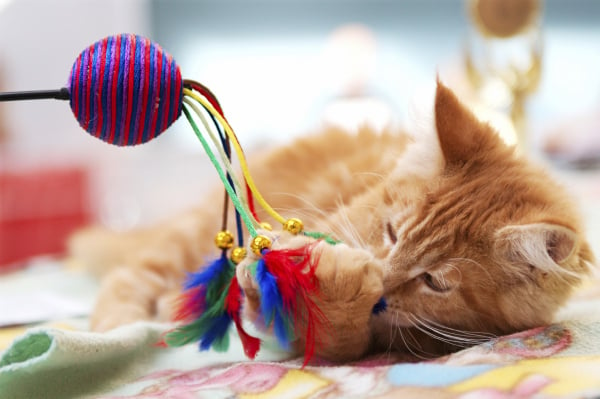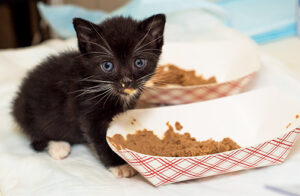Playing isn’t just something cats do for fun; it is an important part of their growth. Kittens learn basic survival habits, how to interact with other cats, and how to coordinate their bodies through play. These are skills they will use throughout their lives. This article discusses how important play is for kittens’ development and how to ensure they have fun when they do it.
Understand kitten play
As soon as the kittens can move around, they start playing. At first, they simply explored their environment as a simple form of play. But soon they started doing more complex things like stalking, diving, and fighting. Kittens enjoy these activities and also help them learn important things for their physical and mental growth.
Growth and development
Kittens need play to grow physically. As they do things like chase, jump, and punch, they become stronger, more coordinated, and faster. These exercises can also help them improve their balance and reflexes so they can move better and stay safe.
Thought and emotional growth
Kittens’ brains grow stronger when they play. It makes them think, makes them more curious, and helps them learn to solve problems. For example, teaching them how to get toys out from under the couch can help them think more clearly. Playing also helps kittens learn to cope with new things and places, reducing their stress and anxiety, which is good for their mental health.
Friendship skills
Cats learn how to interact with other people as they play with their littermates. They learn to talk to each other, negotiate, share, and set boundaries. Through play, they learn about hierarchy and how to read other animals’ body language and signals, which is important for how they bond with people and other pets.
The Role of Human Interaction
Kittens need human interaction to play. When you play with your kitten, you help your kitten interact with people and teach them that they are friends and not enemies. This contact helps prevent behavioral problems and creates trust. Kittens can demonstrate their natural hunting instincts in a controlled environment by playing with toys that resemble prey. This prevents them from developing bad hunting habits, such as biting people’s hands or feet.
Stimulating Play at Different Stages
Kittens’ play habits and skills change as they grow older, so they need different types of stimulation:
2 to 4 weeks old: Kittens at this age are just beginning to understand the world around them. Handling them gently and giving them cuddles can awaken their senses and get them moving.
4 to 8 weeks of age: This is a very important time for social play. To improve their hunting skills, you can give them toys that they can use to chase, jump, and bite.
8-12 weeks and older: Kittens are very active at this age. Give them more difficult toys and games that test their mental and physical skills, such as puzzle feeders or toys that move like real animals.
Why playing safe is important
It’s important to keep your game safe, even if it’s good for you. Avoid small edible objects and watch your children when they play with string-like objects to make sure they don’t accidentally swallow them. Toys should be checked regularly for damage and toys that could be dangerous should be replaced.
Conclusion
A kitten’s physical, mental, emotional, and social growth are all affected by playtime. This isn’t just to pass the time; it is important for their health and happiness. By understanding the importance of play to a kitten’s development and participating in playtime, you can help your kitten grow into a happy, healthy adult cat.
All in all, you can’t say enough good things about playing with kittens. It lays the foundation for a happy, healthy, and peaceful life. Ensuring your kitten gets lots of different types of play will not only help him grow but also improve the bond between you and your furry friend.
FAQs
1. What makes play so important for a cat’s development?
Kittens need play because it helps them grow physically, mentally, emotionally, and socially. It helps strengthen muscles, improve balance, teach people how to solve problems, manage stress, and learn how to get along with others.
2. How old does a cat have to be before she starts playing?
When a kitten starts to move (usually between two and three weeks of age), it begins to play. As they get older, their games become more complex, involving more people and a wider range of skills and habits.
3. Do kittens become more social when they play?
Kittens learn important social skills such as talking to others, sharing, and building social structure through play, especially with littermates or other animals. It teaches them to read and respond to signals and body language, which is important for interacting with people and other animals.
4. What toys and games are best for kittens at different stages of growth?
Soft toys and gentle petting are good options for kittens between 2 and 4 weeks old. From 4 to 8 weeks of age, toys that chase, jump and bite can help them learn to hunt. Kittens over 8 weeks old need toys and play environments that are more challenging for them both physically and mentally.
5. How do I keep my kitten safe while playing?
Monitor your kitten when she plays with toys, especially ones with strings or small parts that she can eat. To prevent your child from choking or being injured, check the toy regularly for damage and replace it if necessary.



